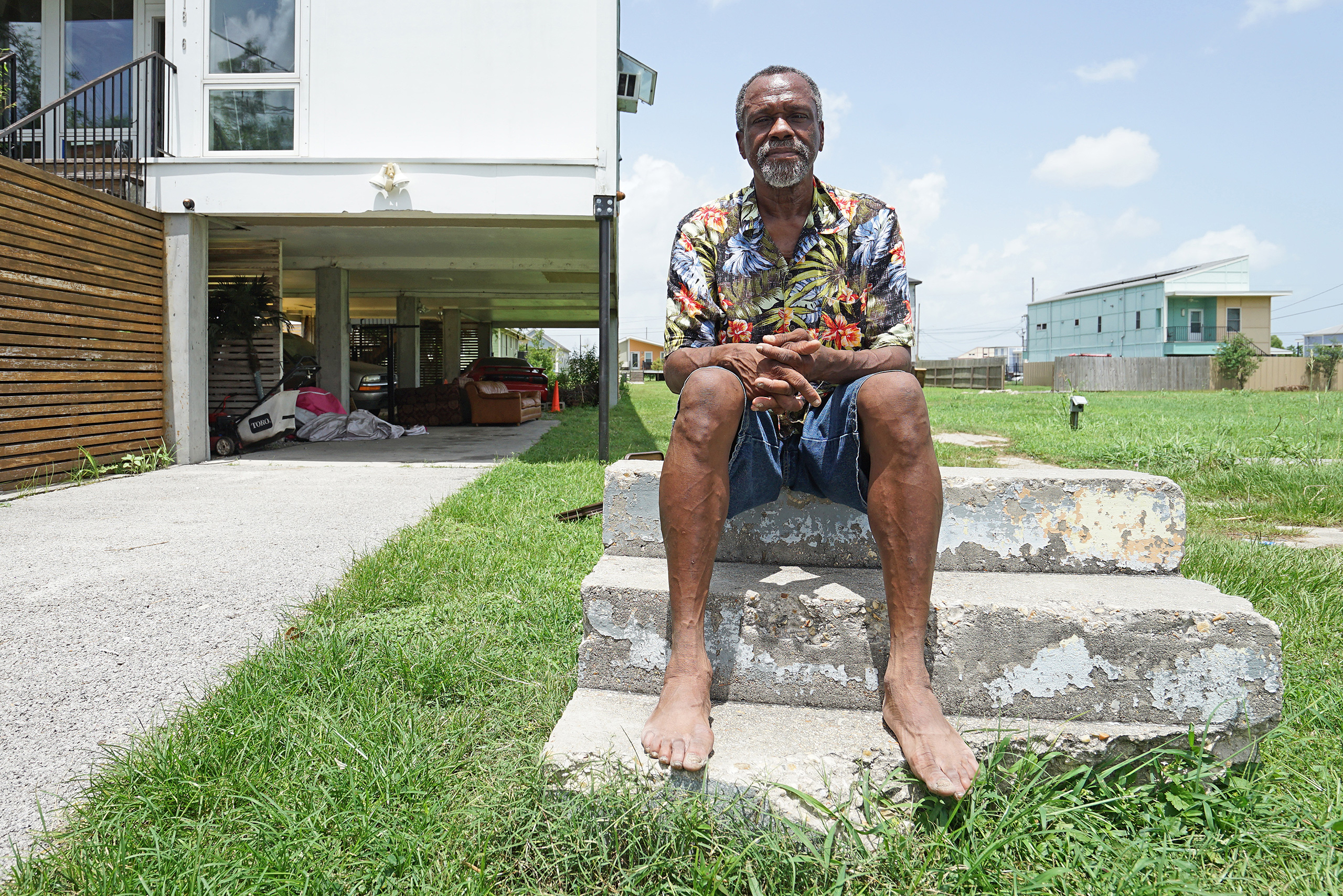The following is just a small excerpt from the interview:
Matthias Ries:
Why do you think it’s important to continue this history [editors note: that means rebuilding the Lower Ninth Ward and trying to bring back the people to live in this severely hit neighborhood once again]? I mean, you could just have moved somewhere else.
Robert Green:
Well, you couldn’t continue the history anywhere else. You couldn’t move somewhere else. One thing is, there’s no sense of thinking there’s any other place you could go. If I went to California, I’d be dealing with mud slides and the drought; if I went to Houston, right now they had floods, so there’s no sense of thinking why not rebuilding this community. Destruction has happened – and it hasn’t happened in this neighborhood since Katrina like it has happened all over this country. The tornados hit the same neighborhoods, the fires hit the same fires, so it has become a seriously mood question of why rebuild? Simply we are Americans, simply we can, simply we own, simply we did and simply we will. So it makes no difference what anybody else thinks, we’re gonna do it anyway, cause that’s what Americans do.
Matthias Ries:
As you are talking about Americans… On a lot of your pictures… I am not sure, who is the one [editors note: in one of the pictures used in newspapers during the hurricane Katrina news coverage] standing on the roof and holding the American flag?…
Robert Green:
Well, to me that’s symbolic with me; symbolic of the flag that I got at my mothers funeral…
Matthias Ries:
Why is the American flag so important. You also have this picture of you, standing of the remains of your steps, in your hands the American flag waving in the wind.
Robert Green:
Well, if you understand how I get the flag… The way you get the flag is when you are fighting in the armed forces, when you are fighting for the country that you serve, you get something for it and as a military person, who actually did that, and as a military family, that most African-American families are, it ‘s something that we honor. So at the dead of my mother, she was honored to have that flag placed on her casket. So I was given that flag, me I am proud, you know, to hold it; I am proud to slue it. The symbolism of sluing the man flying on the flag; well basically that’s the flag that I got as the result of my mothers service to this country. When she died, it came to me. So I’m proud to fly it, I’m proud to slue it, I am proud to send it anywhere I can. So basically it’s like your history, your culture, you’re proud of your future, you’re proud of your past – and that’s what that flag means to me, that’s what I see in the flag. We are proud of the fact that we did fight for this country, we did serve this country and now we can bear that flag, just like any other American can.
————-
[…]
————-
Matthias Ries:
Coming back to the archive topic. As you said, there’s a Hurricane Katrina memorial park in the planning. How important are such places for those who experience such an event?
Robert Green:
Well, that would be the same as asking how important was some of the stuff that happened with the Holocaust. It’d be asking, how it is important with some of the things that happened… You know in all the same or similar situations it becomes important to remember, and it’s easier to remember in a place like the World War II museum. It’s easier to understand what happened in that museum, if you can see it. Katrina was a unique and history changing event so to really bring the tension to as a result of it, what happened to the people – resulting from what the government didn’t do, but what resulted form what volunteers did – that’s one way of preserving it. So that memorial, or that museum can do the same thing.
Matthias Ries:
To me there is a difference between a memorial for those who actually experienced it – for example take a grave at a graveyard; you probably visit it, but the public doesn’t go there. It’s a very private thing, a private memorial. How different from that do you think a memorial of Katrina is for future generations?
Robert Green:
The difference is, is what you don’t realize. If you’d take one of those boats that actually worked in World War II and put people on the beach. To see that boat tells something, it tells more than just what you feel, when it becomes personal to the people who died. So what I am saying to you, the memorial – that actually is a collaboration of the people, giving what they feel is important to be remembered; that’s what important. So, you can’t separate the two. You can’t say this is this and this is that, but your opinion does matter and that’s good, but what I am saying is, there’s no separation. It doesn’t make a difference whether it’s personal or not. If I want to give this set of steps [editors note: the remaining front steps of his destroyed house, that he is sitting on during the interview] to this memorial, it’s my choice. If I want to give that cross [editors note: he is pointing towards the cross he erected in his front yard as a memorial to his mother and grand daughter] to that memorial, that’s my choice. And that’s the thing about it; if I choose to do it and want to do it, why not let the story of why that cross stayed on forever, why not let the story of why these steps are so important. You can’t separate some of the personal stories of a memorial without having the artifacts that are personal. So you can’t have one without the other; you can’t have it both ways.
Interview with Robert Green
16th of June 2015
| subscribe to the RSS feed
Robert Green is a longtime resident and community speaker of the Lower 9th Ward in New Orleans. During Hurricane Katrina on August 29th in 2005, the Lower 9th Ward neighborhood was swept away by the floods due to an unanchored barge hitting a whole in the nearby levee. In the course of events, Mr. Green has lost his mother and granddaughter in the floods. Years later, the Brad Pitt foundation started an initiative to help the people of the Lower 9th Ward to rebuild their neighborhood. Architectural offices around the world were asked to provide designs for sustainable, modern and flood-safe homes. Nowadays, the neighborhood looks quite different than prior to Katrina, yet this difference is part of what creates the site specific cultural memory.

